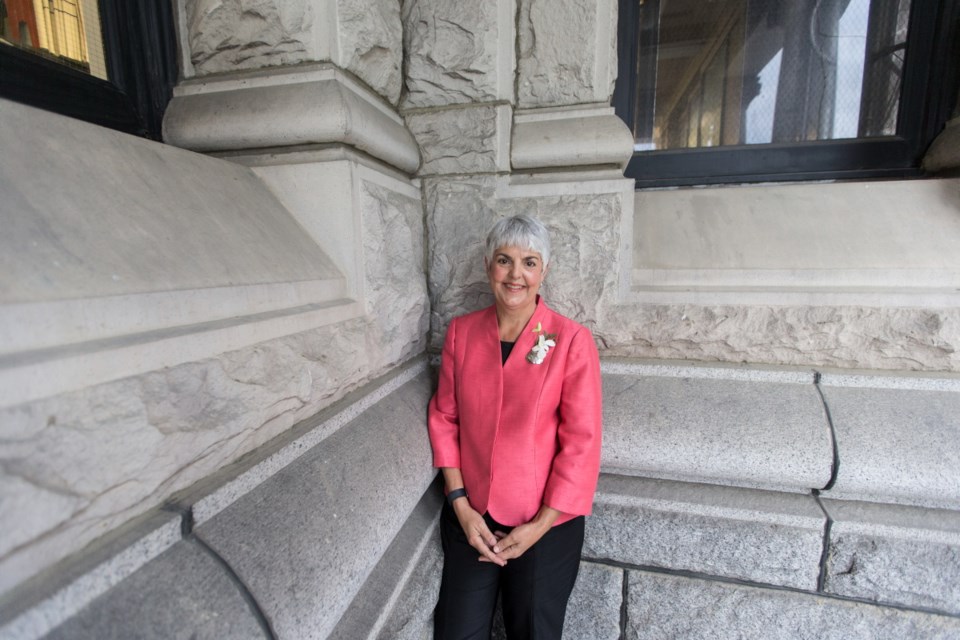Finance Minister Carole James is set to deliver a budget update Monday that will boost spending on education and provide further details of the NDP government’s ambitious agenda to cut fees and improve services.
Friday’s throne speech made clear that education is one of the government’s “highest priorities” and will figure prominently in the fiscal update.
“Your government will fix the problems in our education system and invest in student success,” the speech said.
“The September budget update will take our first steps toward restoring proper funding for B.C. classrooms and give students the supports they need to succeed.”
Premier John Horgan told reporters that James will follow through on the NDP’s campaign commitments on education.
“What we’re really focused on in the throne speech … was making sure that there were resources in classrooms for kids,” he said. “Carole James, when she tables our first budget, our financial update next week, will have the details on that.”
James will also have information on the NDP’s campaign promise of a $400-a-year rebate for renters, Horgan said. The party’s platform pledged to spend $135 million this year on the rebate and housing affordability programs, with the figure rising to $265 million for a full year.
In an interview, James said that most of the programs included in the fiscal update — such as a free post-secondary tuition for former foster children and a $100-a-month increase in disability and income assistance — have already been announced.
“You will see a couple of other pieces in the budget coming up, but, really, the full budget will come in February, which gives the opportunity for ministers to go through the process of setting their priorities.”
Liberal finance critic Shirley Bond said the NDP inherited a strong economy and “one of the best balance sheets in Canada” with a $2.74-billion surplus in 2016-17. Yet, she said, the NDP’s throne speech made few references to growing the economy that has put B.C. in such an enviable position.
“Yes, British Columbians told us that we needed to spend in certain areas, and we certainly heard that,” she said. “But, on the other hand, you have to grow the economy to be able to pay for it.
“So the critical question we’re going to be asking is: How are these programs going to be implemented? How are British Columbians going to be asked to help pay for them?”
Bond said the Liberals also have concerns about the impact rising interest rates and a record wildfire season will have on the province’s bottom line.
James has acknowledged that the budget is already facing pressure, with wildfire and flood spending $389 million over budget.
“For the upcoming years, it’s going to have a longer impact as well, certainly an impact on the forest industry with all of that fibre gone, and certainly an impact on the communities.”
James acknowledged, too, that the new government is under intense pressure to fix problems and services that some believe were neglected by the former Liberal government.
She said balancing the budget will require the government to set priorities and stay disciplined, while recognizing that investing in people can help the overall economy.
“For 16 years, we’ve seen a government that focused on a strong economy to the detriment of people, to the detriment of infrastructure in our province,” James said.
“I think what you will see is a shift where we are investing in a strong economy and investing in people, because they are linked.”
She said the NDP government’s decision to scrap fees for adult basic education and English language programs, for example, will ultimately benefit the economy by giving people skills to get better paying jobs.



